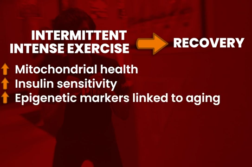ORLANDO, Fla. (Ivanhoe Newswire)— Bariatric surgery is best known as a weight loss tool when diet and exercise don’t cut it. Research shows about 228,000 Americans undergo these procedures each year which is only about one percent of the eligible population. Now a new study reveals this surgery has benefits beyond weight loss.
Obesity is a national epidemic. More than one in three American adults is obese and about one in 13 is considered extremely obese. Weight loss procedures known as bariatric surgery can help people who have severe obesity lose weight. A new study led by Cleveland Clinic researchers shows the surgery might also help keep a person’s liver healthy.
“What happened was very dramatic,” said Steven E. Nissen, M.D., MACC, Chief Academic Officer Heart, Vascular & Thoracic Institute at Cleveland Clinic.
Fatty liver disease occurs when the liver becomes infiltrated with fat. It can lead to liver failure and there’s no cure. Investigators studied 1,158 adults and found those who had bariatric surgery had an 88 percent lower risk of having their advanced fatty liver disease progress to cirrhosis, liver cancer, or liver-related death.
“The reduction was as large as we’ve ever seen for any intervention for any disease,” shared Dr. Nissen.
Researchers also found patients who had bariatric surgery had a 70 percent lower chance of developing serious cardiovascular issues, like heart attack and stroke. While there are some risks, doctors say the procedures are safe and effective options for those who are good candidates.
Other research has shown bariatric surgery may help improve or lower the risk of type two diabetes, sleep apnea, back pain, and depression.
Contributors to this news report include: Julie Marks, Field Producer; and Roque Correa, Editor.
To receive a free weekly e-mail on medical breakthroughs from Ivanhoe, sign up at: http://www.ivanhoe.com/ftk
MEDICAL BREAKTHROUGHS
RESEARCH SUMMARY
TOPIC: BARIATRIC SURGERY: NEW BENEFITS FOR YOUR LIVER AND HEART!
REPORT: MB #4987
BACKGROUND: Nearly 40 percent of Americans have obesity. Obesity is a disease that is a worldwide health concern associated with having an excess amount of body fat. Typically, genetic and environmental factors are the cause, and it can be difficult to control through dieting alone. Obesity is where a person’s weight is unhealthy and a disease that can lead to other health problems. It is diagnosed by a healthcare provider and is classified as having a body mass index (BMI) of 30 or greater. Body fat is hard to measure directly, so is often measured by BMI, which measures weight related to height. BMI is not a percentage of body fat and is only part of a diagnosis of obesity.
(Source: https://www.obesityaction.org/get-educated/understanding-your-weight-and-health/what-is-obesity/)
LOWERING RISKS WITH BARIATRIC SURGERY: A Cleveland Clinic study showed that patients with obesity and advanced fatty liver disease who had bariatric weight loss surgery significantly lowered their risk of liver disease complications and cardiovascular disease compared with patients who did not have surgery. The accumulation of fat in the liver causes inflammation and damages the organ. As liver disease progresses, scar tissues form in the liver, preventing the liver from functioning properly. In addition to complications related to liver disease, fatty liver is strongly linked with diabetes and cardiovascular diseases, such as heart attack and heart failure. Bariatric surgery was associated with a significant reduction in blood sugar levels in patients with diabetes. Those findings confirm the durability of health benefits of bariatric surgery.
NEW TREATMENT FOR OBESITY: The FDA has approved an injectable medication taken once per week for weight management, called Wegovy. Phase 3 clinical trials were conducted in a variety of clinical scenarios, each varying slightly in the study population and study design. The results, which were published in the New England Journal of Medicine, demonstrated an average of 14.9% body weight reduction after 68 weeks of therapy in those assigned to the medication group, versus only 2.4% weight loss in those assigned to the placebo group. The most common side effects were nausea, diarrhea, vomiting, and constipation. This injectable can be used for as long as it remains beneficial for weight loss and/or weight maintenance and is not causing intolerable side effects. The SELECT trial is the long-term cardiovascular outcomes trial for Wegovy that aims to assess its effects on heart disease and stroke in patients with overweight and obesity and is currently ongoing.
(Source: https://www.health.harvard.edu/blog/a-new-treatment-for-obesity-202109102589)
FOR MORE INFORMATION ON THIS REPORT, PLEASE CONTACT:
CAROLINE AUGER
If this story or any other Ivanhoe story has impacted your life or prompted you or someone you know to seek or change treatments, please let us know by contacting Marjorie Bekaert Thomas at mthomas@ivanhoe.com




